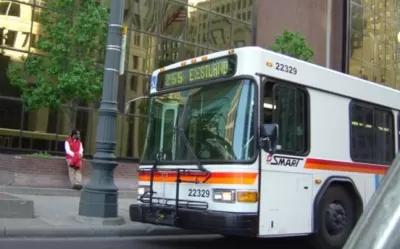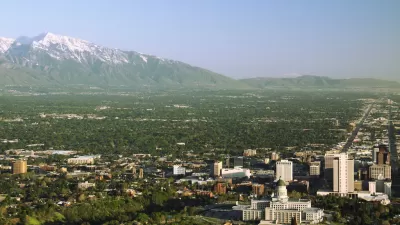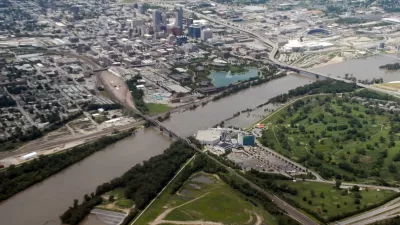Improved connectivity and reliability in the region's public transit could stimulate growth and help build a more vibrant local economy.

In a piece in Michigan Advance lamenting the "sorry state of public transportation in metro Detroit," Rick Haglund argues that the lack of regional connectivity in southeast Michigan is causing major economic damage to the area. "Amazon, for example, cited the lack of a regional transit system as one reason why it rejected Detroit in 2018 as a site for its $5 billion second headquarters, which might have brought thousands of six-figure salaried jobs to the area."
Widely regarded as one of the nation's worst public transit systems, Detroit relies on "two unconnected and inadequate bus systems" that serve more than 4 million residents. "Local metro Detroit leaders have been trying for more than 50 years to build a comprehensive transit system," but efforts have been stymied by opposition to new taxes.
But "[d]espite a lack of funding, there have been a variety of improvements to public transit in southeast Michigan," and the region "is expected to receive about $300 million from various COVID relief programs" that will backfill lost revenue. Ned Staebler, vice president for economic development at Wayne State University in Detroit and Washtenaw County representative on the Regional Transit Authority of Southeast Michigan (RTA) board of directors, "said the RTA will begin an extensive public engagement process this summer as part of an effort to create a new transit master plan." The agency has "hired GUD Marketing in Lansing to conduct a community engagement process, which will include involvement of a variety of business, citizen, nonprofit, political, faith-based and senior groups."
FULL STORY: Absence of viable regional transportation continues to hurt SE Michigan

Alabama: Trump Terminates Settlements for Black Communities Harmed By Raw Sewage
Trump deemed the landmark civil rights agreement “illegal DEI and environmental justice policy.”

Study: Maui’s Plan to Convert Vacation Rentals to Long-Term Housing Could Cause Nearly $1 Billion Economic Loss
The plan would reduce visitor accommodation by 25% resulting in 1,900 jobs lost.

Why Should We Subsidize Public Transportation?
Many public transit agencies face financial stress due to rising costs, declining fare revenue, and declining subsidies. Transit advocates must provide a strong business case for increasing public transit funding.

Wind Energy on the Rise Despite Federal Policy Reversal
The Trump administration is revoking federal support for renewable energy, but demand for new projects continues unabated.

Passengers Flock to Caltrain After Electrification
The new electric trains are running faster and more reliably, leading to strong ridership growth on the Bay Area rail system.

Texas Churches Rally Behind ‘Yes in God’s Back Yard’ Legislation
Religious leaders want the state to reduce zoning regulations to streamline leasing church-owned land to housing developers.
Urban Design for Planners 1: Software Tools
This six-course series explores essential urban design concepts using open source software and equips planners with the tools they need to participate fully in the urban design process.
Planning for Universal Design
Learn the tools for implementing Universal Design in planning regulations.
Caltrans
Smith Gee Studio
Institute for Housing and Urban Development Studies (IHS)
City of Grandview
Harvard GSD Executive Education
Toledo-Lucas County Plan Commissions
Salt Lake City
NYU Wagner Graduate School of Public Service




























